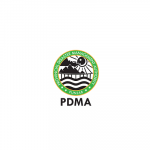Islamabad: The government is exploring various options to include online shopping and e-commerce activities within the tax net in the upcoming budget for the fiscal year 2025-26. This move aims to boost revenue collection from a sector that has rapidly grown and become integral to urban households, especially among the middle and upper-income groups.
According to sources, the Federal Board of Revenue (FBR) is considering imposing a general sales tax (GST) on e-commerce transactions. One proposed method includes allowing delivery service providers to deduct a 3 percent tax from customers on cash-on-delivery orders, which would then be deposited with the government. The remaining 15 percent GST would be collected from manufacturers and included in the product cost.
Read: IT sector seeks 10-yr tax relief to stay globally competitive
These proposals come as Pakistan prepares to engage in virtual discussions with the International Monetary Fund (IMF) starting Wednesday, aimed at finalizing the budget. The talks will focus on measures to curtail government expenditure and enhance tax revenues to meet the IMF’s target of limiting the budget deficit to 5.1 percent of GDP for the next fiscal year.
Past government efforts to broaden the tax base have struggled to bring many retailers into the tax net. The current government’s Tajir Dost Scheme also failed to attract sufficient participation from retailers. Consequently, online shopping has been identified as a promising sector to capture for taxation.
The FBR is also considering expanding the tax net through the taxation of purchases made via debit and credit cards. While federal excise duty (FED) is already imposed on international credit and debit card transactions, local sales made through these payment methods remain untaxed under FED regulations.
A recent study by the FBR highlighted the significant potential for tax revenue from e-commerce, given the growing trend of online shopping in Pakistan’s urban centers.
An official stated, “We are considering options to bring online shopping or e-commerce into the tax net from the next budget. Online shopping has become a growing phenomenon in Pakistan. Different tax proposals will be discussed with the IMF team starting Wednesday.”
Read: IT sector continues growth, hits USD 2.18 bn in exports
The FBR plans to propose amendments to tax laws that would require online retailers, including marketplace operators who do not own inventory, to collect and remit sales tax on behalf of the government.
However, some tax experts have expressed concerns that taxing the online shopping sector at this early stage could hinder its growth, which remains nascent but rapidly expanding. Despite this, tax authorities argue that introducing taxation now is essential, as delaying could make it increasingly difficult to integrate the sector into the formal tax system in the future.







